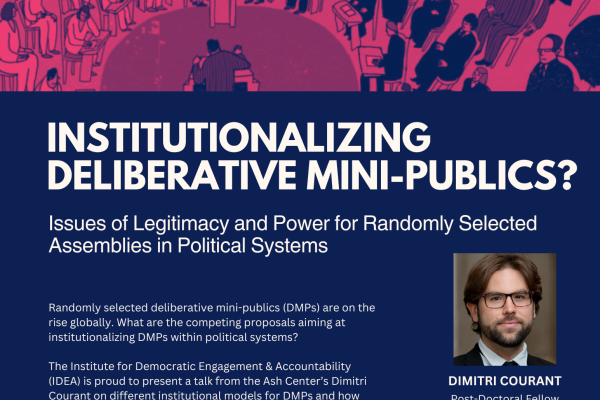
IDEA is proud to host a talk with Dimitri Courant, Post-Doctoral Fellow at Ash Center for Democratic Governance and Innovation at the Harvard Kennedy School, on his paper, "Institutionalizing Deliberative Mini-Publics: Issues of Legitimacy and Power for Randomly Selected Assemblies in Political Systems." The talk will be Thurs. Apr. 11 from 1:30 - 3 pm in the Spencer Room (2130 Derby Hall). All are welcome.
Abstract:
Randomly selected deliberative mini-publics (DMPs) are on the rise globally. However, they remain ad hoc, opening the door to arbitrary
manoeuvre and triggering a debate on their future institutionalization.What are the competing proposals aiming at institutionalizing DMPs within political systems? I suggest three ways for thinking about institutionalization: in terms of temporality,
of legitimacy and support, and of power and role within a system. First, I analyze the dimension of time and how this affect DMP
institutional designs. Second, I argue that because sortition produces ‘weak representatives’ with ‘humility-legitimacy’, mini-publics
hardly ever make binding decisions and need to rely on external sources of legitimacies. Third, I identify four institutional models,
relying on opposing views of legitimacy and politics: tamed consultation, radical democracy, representative klerocracy and hybrid
polyarchy. They differ in whether mini-publics are interpreted as tools: for legitimizing elected officials; to give power to the people;
or as a mean to suppress voting .
